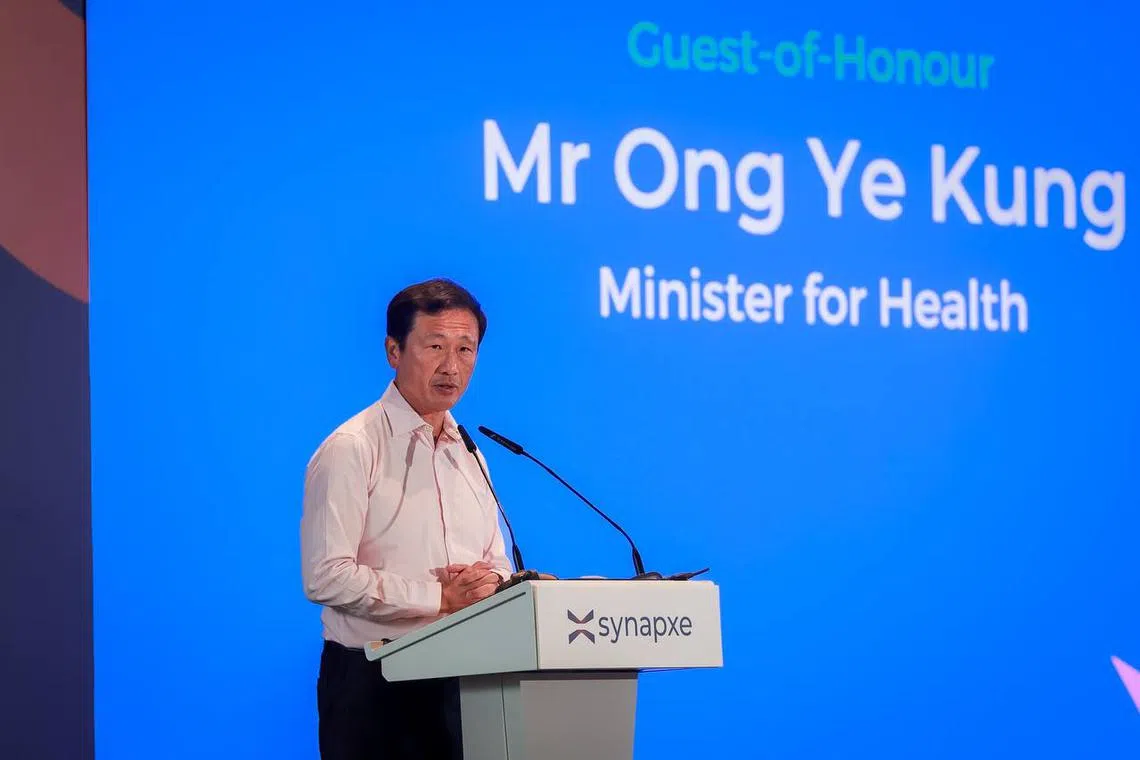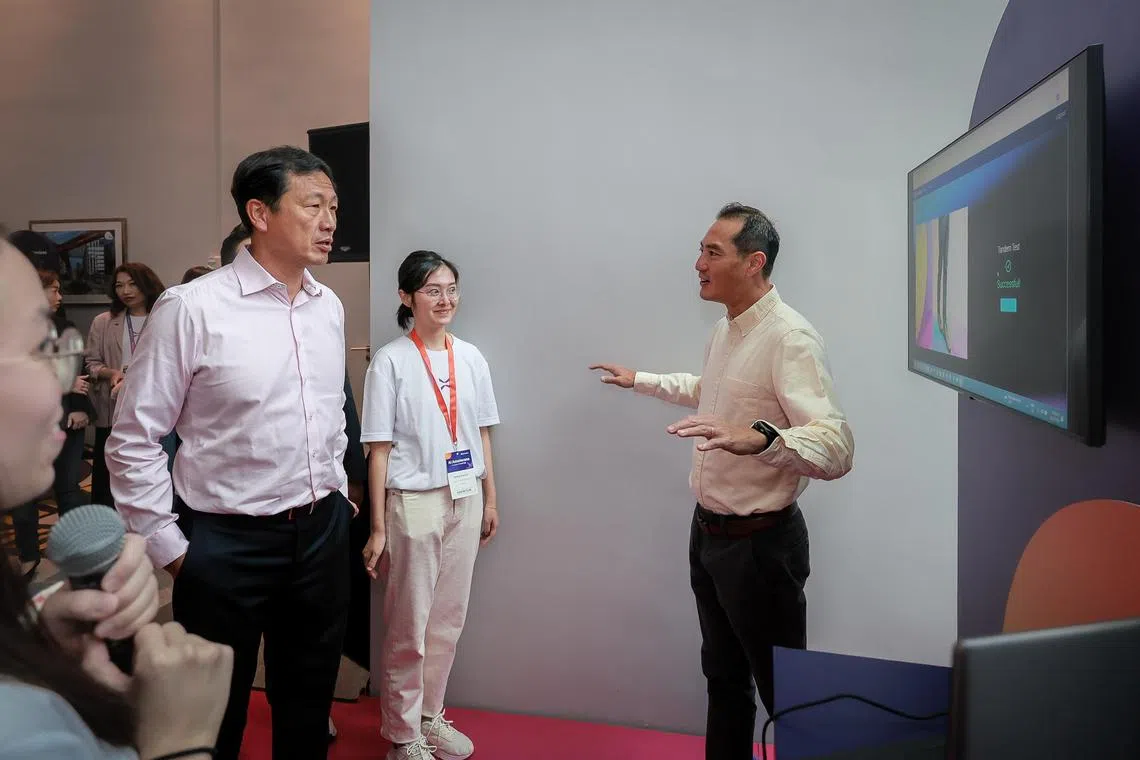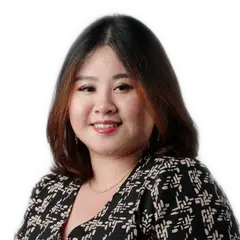AI to help doctors predict disease risk in next phase of Healthier SG: Ong Ye Kung
Sign up now: Get ST's newsletters delivered to your inbox

Health Minister Ong Ye Kung speaking at the AI Accelerate conference held in Punggol Digital District on June 16.
ST PHOTO: GAVIN FOO
Follow topic:
SINGAPORE – National health records and socio-economic and genetic data may be used to support preventive care and social prescribing as the next bound of Singapore’s Healthier SG programme.
Announcing this at the inaugural AI Accelerate conference
“This will be in the next bound of Healthier SG, leveraging health records, evidence-based clinical risk scoring and AI’s predictive powers to support preventive care and social prescribing,” said Mr Ong at the conference organised by national healthcare technology provider Synapxe and held in Punggol Digital District.
But he added that humans are still irreplaceable. “We will continue to maintain the human touch through our family doctors, guiding and empowering residents to take charge of health outcomes before illness strikes,” he said, likening using AI with no doctors to flying a plane without a pilot.
“Likewise, while there is literature suggesting that AI provides better medical diagnosis and treatment plans than a doctor equipped with AI, I think most of us will still prefer the latter because we trust the human doctor who can empathise with our worries and concerns,” he said, noting that AI does not think, feel, hope, fear or empathise.
Mr Ong also outlined major national healthcare AI projects that the public can expect in the months to come.
By 2027, the national HealthHub app that holds citizens’ health records will be consolidated with apps from Singapore’s three healthcare clusters – Health Buddy, NHG Cares App and NUHS App – to improve online accessibility of public healthcare services.
“We can enhance this new, consolidated HealthHub with AI, so that the app can do more than manage health records, appointments and bill payments,” Mr Ong added.
For instance, HealthHub AI can offer personalised health information, such as how to manage common health conditions, including through lifestyle changes. The advice will be given in speech and text in four languages and in a conversational style.
“It is currently in beta, and users’ feedback has been promising,” said Mr Ong, adding that Synapxe aims to launch this later in 2025.
The public healthcare sector also plans to expand its use of AI for chest X-rays. It is used at the National Healthcare Group’s Geylang Polyclinic to help prioritise cases so that patients with normal results can be managed more quickly.
In June, the National Centre for Infectious Diseases will start to use chest X-ray AI to screen for tuberculosis. Similarly, Woodlands Health will start to use imaging AI in its emergency department to detect bone fractures, said Mr Ong.
The capability will be rolled out progressively across the public healthcare system by end-2026, he said.

Senior Minister of State for Health Tan Kiat How (right) trying out a tandem test at the Aspire booth at the AI Accelerate conference held in Punggol Digital District on June 16, with Health Minister Ong Ye Kung looking on.
ST PHOTO: GAVIN FOO
AI can expand human skills and ability to get more things done, and done better, but also subtracts the human experience of discovery and trial and error. It is important to fully leverage AI, but not become subservient to it, he added.
Whether by coincidence or divine intervention, Mr Ong said, AI is bursting onto the scene just when human societies are experiencing an unprecedented process of ageing.
“Patient numbers are rising, with more complex and multiple conditions; healthcare systems are stressed; care is shifting to the community and patients’ homes; prevention of diseases is taking centre stage,” he said.
“AI is a scientific gift to us to tackle the biggest social challenge of our time.”


